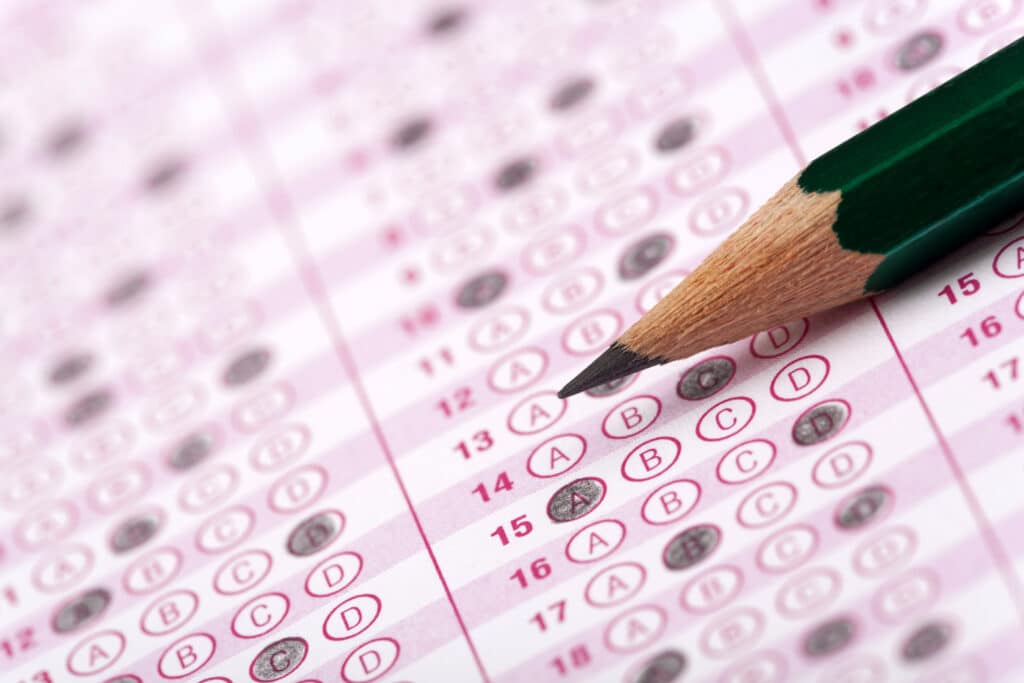
7 Shocking Facts About the Google Memory Game You Never Knew
We all have our favorite memory games, but did you know that Google has entered the ring with an impressive array of neurologic challenges for

Studying for the MCAT can be a stressful enough endeavor without having to worry about how you’ll cope with exam day stress. But don’t despair – there are ways to manage pressure, including nootropic supplements which may help ease MCAT anxiety. Stress management also plays a significant role in medical school and working as a doctor, so keep reading!
The initial step to managing stress about a problem is breaking it into manageable pieces. Since we’re talking about MCAT stress here, the issue lies within the exam itself; so let’s take a look at its various sections.
The MCAT exam is an extensive assessment that tests students’ capacity for critical analysis and application of scientific principles. It consists of four sections: Chemical and Physical Foundations of Biological Systems (physical sciences); Biological and Biochemical Foundations of Living Systems (biological sciences); Critical Analysis and Reasoning Skills (CARS); as well as Psychological, Social, and Biological Foundations of Behavior.
The physical sciences section of the MCAT exam tests students’ knowledge of physics and chemistry. The physics section emphasizes principles relevant to biological processes, while chemistry covers topics like atomic structure, bonding, and chemical reactions.
The physical sciences section is challenging, yet essential for students if they plan to attend medical school. Here, students must apply their knowledge of physics and chemistry to solve problems. Therefore, those interested in the physical sciences should familiarize themselves with the content covered on the MCAT exam.
The Biological Sciences section of the MCAT exam tests students’ understanding of fundamental biological concepts. This section includes questions on biochemistry, molecular biology, genetics and immunology; therefore, students need a solid grasp on these fundamentals to succeed on this section.
Biochemistry questions focus on the structure and function of biomolecules, enzymes, metabolism, and cellular processes. Molecular biology questions cover DNA replication, transcription, translation, gene regulation. Genetics questions assess students’ knowledge of Mendelian inheritance patterns as well as non-Mendelian inheritance disorders and population genetics. Immunology questions assess humoral/cell mediated immunity, autoimmune diseases and transplant rejection.
The Biological Sciences section can be difficult, but it’s essential for students aspiring to a career in medicine. While preparation for this exam requires considerable hard work and dedication, students who succeed will be better equipped for the demands of medical school.
The Critical Analysis and Reasoning Skills section of the MCAT exam tests your ability to read complex scientific passages, comprehend them, analyze them critically, and critique their arguments. This section includes various question types such as reading comprehension questions, critical analysis questions, and passage-based reasoning questions.
To score well on this section, you must be able to quickly and effectively read scientific passages. Furthermore, you should be able to identify the main points and various arguments or viewpoints presented. Furthermore, critical analysis should be applied when reviewing these arguments; whether they are logical and supported by evidence.
The Critical Analysis and Reasoning Skills section of the MCAT exam presents a challenge, yet it is an integral component. If you prepare adequately, chances are good that you’ll do well on it and earn high marks.
The Psychological, Social and Biological Foundations of Behavior section of the MCAT exam tests students’ understanding of how psychological, social and biological factors shape behavior. Topics covered include motivation, emotions, aggression, stress, social influences and drug abuse; plus questions related to brain and nervous system functioning that influence behavior.
Psychology topics range from personality theory and perception, cognition and learning. Students are tested on their understanding of how these psychological concepts shape behavior; additionally, there are questions on psychological disorders like depression or schizophrenia.
Social studies topics cover socialization, culture, groups and organizations. Students are tested on their understanding of how social influences shape behavior as well as questions on pressing social issues like poverty and racism.
Behavioral biology topics cover genetics, hormones and the brain. Students are tested on their knowledge of how biological factors shape behavior as well as questions on medical conditions that could potentially influence it such as Alzheimer’s disease and autism.
Many of the nootropic compounds in ISO Brain enhance cognition by modulating the cholinergic system of the brain. If you understand what this means, congratulations – you’re likely already on your way to passing the behavioral sciences section!

Now that we’ve broken down the exam, here are some tips for dealing with MCAT stress:
Although it may be obvious, getting enough rest is essential when prepping for an exam. Your brain needs time to process all the information it’s been taking in, so ensure you allow yourself plenty of down time.
Sleep deprivation can lead to irritability, short temper, and poor decision-making. When you are tired, your body releases stress hormones such as cortisol that increase heart rate and blood pressure over time; these could potentially develop health complications over time if left unchecked. Getting enough rest allows your body to repair itself from stress while improving mood levels.
Many students rely on caffeine to aid their studies. Although this can be beneficial, too much caffeine can interfere with sleep patterns. A caffeine-free nootropic supplement like ISO Brain can be an ideal solution for students who want to maximize their studying time without sacrificing sleep.
Eating nutritious foods will help your body and mind function at their best. Avoid sugary and fatty junk food, which will only make you feel sluggish.
Eating healthy can have many advantages, such as reducing stress levels. When you eat sugary foods, your insulin levels may spike and crash, leaving you feeling anxious and then exhausted. On the other hand, nutritious meals provide your body with essential nutrients it needs for optimal performance – including antioxidants that protect cells from stress damage. Furthermore, maintaining stable blood sugar levels with nutritious meals helps avoid mood swings or irritability due to sudden spikes in energy. By eating nutritiously balanced meals regularly, not only will your stress decrease but also improving overall health benefits like improved mood swings or irritability. Eating healthily will keep stress at bay by eating nutritiously for better control over stress levels overall.
Exercise regularly to relieve stress and boost your mood. A fit body equals a happy mind, so don’t neglect your fitness just because you’re studying for the MCAT.
Exercise releases endorphins, or hormones that make you feel good. Exercising is also an excellent way to relieve tension and relax both mind and body. Furthermore, exercise maintains cardiovascular health – essential for brain function as it improves oxygen supply to the brain.
It’s essential to take breaks from studying, or else you may become overwhelmed. Take a few minutes away from the books every couple of hours and give yourself time for relaxation and reinvigoration.
One reason breaks are beneficial for stress is they provide time to relax. Being constantly on the go makes it difficult to truly unwind and de-stress, so taking a break allows you to step away from your obligations and give yourself some space to unwind. Doing this helps clear your mind and makes it easier to focus when you return to your tasks.
Breaks can also give you a fresh perspective. Working on something for an extended period of time can often lead to becoming bogged down in the details, so taking a break allows for a step back and more comprehensive view of the problem at hand, which makes it simpler to come up with fresh solutions or approaches.
Nootropic supplements can enhance cognitive function and reduce stress levels. They’re an ideal way to give your mind the extra push it needs when studying for the MCATs.
Nootropics are compounds that help enhance cognitive function, such as memory, focus, creativity and motivation. ISO Brain’s combination of 15 clinically evaluated nootropics can assist students in prepping for exams by improving focus and motivation. Furthermore, ISO Brain helps with memory recall which could be useful when retaining information for a test. Unlike prescription “study drugs,” ISO Brain’s nootropics are safe and non-addictive – making them an ideal option for students who need an edge but don’t want to develop an addiction issue.
These tips can help you manage MCAT stress and achieve success on the exam. Best of luck!

We all have our favorite memory games, but did you know that Google has entered the ring with an impressive array of neurologic challenges for

Einstein’s Universal Appeal: Exploring the Global Impact of an Iconic Genius in 2023 Why Does the World Remember Einstein as a World Citizen? What is

I genuinely dislike computer science, but that won’t stop me from earning my degree by 2023. It’s no secret that computer science classes can be

In the early days of Instagram, getting verified was considered a sign of honor. That little blue checkmark next to your name indicated you were
† These statements have not been evaluated by the FDA. This product is not intended to diagnose, treat, cure, or prevent any disease.